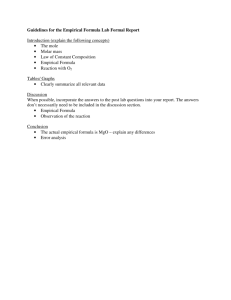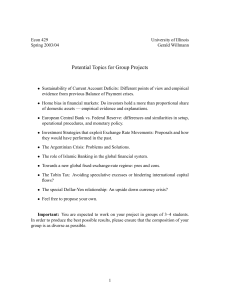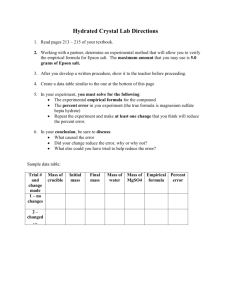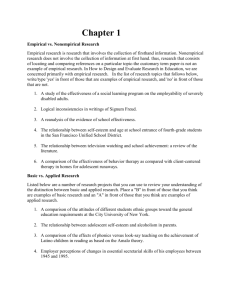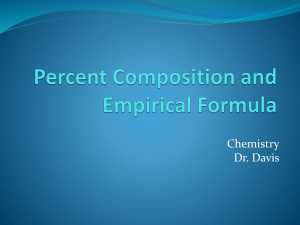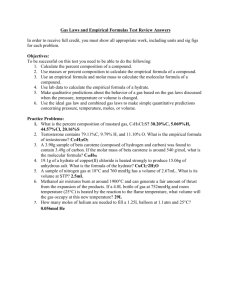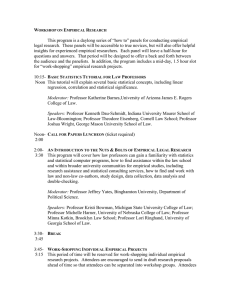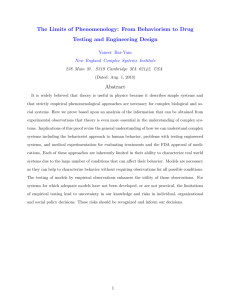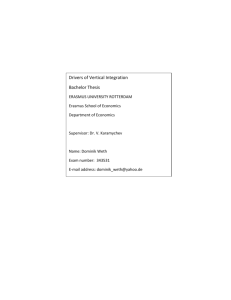Empirical Formula The empirical formula for a substance is the
advertisement
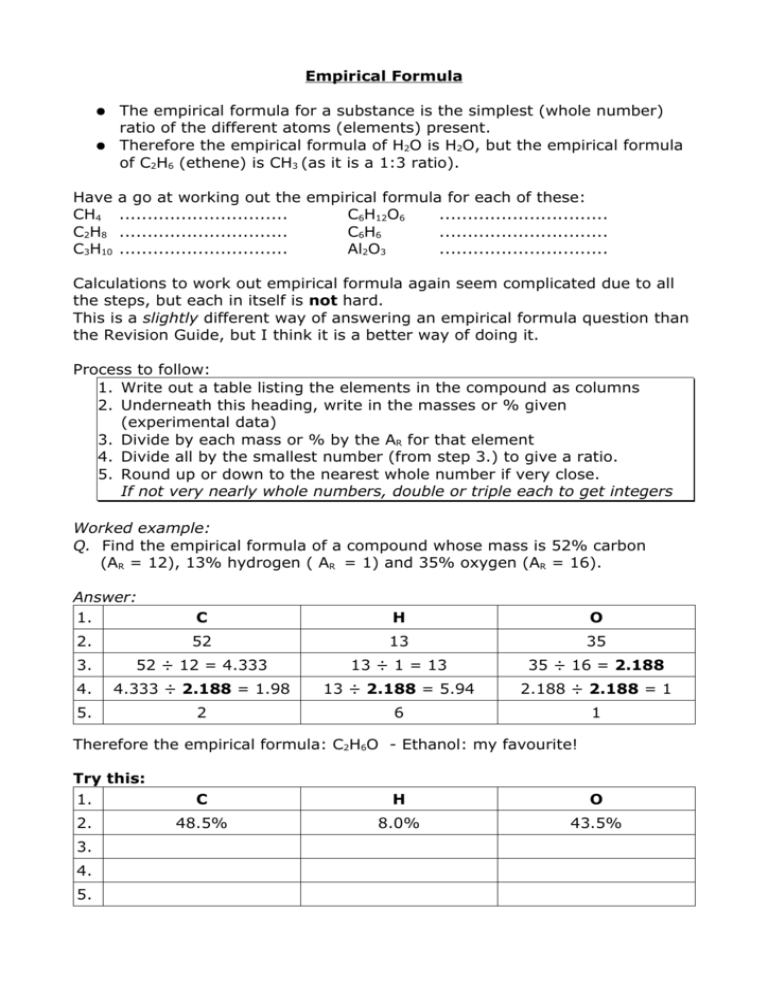
Empirical Formula ● ● Have CH4 C2H8 C3H10 The empirical formula for a substance is the simplest (whole number) ratio of the different atoms (elements) present. Therefore the empirical formula of H2O is H2O, but the empirical formula of C2H6 (ethene) is CH3 (as it is a 1:3 ratio). a go at working out the empirical formula for each of these: .............................. C6H12O6 .............................. .............................. C6H6 .............................. .............................. Al2O3 .............................. Calculations to work out empirical formula again seem complicated due to all the steps, but each in itself is not hard. This is a slightly different way of answering an empirical formula question than the Revision Guide, but I think it is a better way of doing it. Process to follow: 1. Write out a table listing the elements in the compound as columns 2. Underneath this heading, write in the masses or % given (experimental data) 3. Divide by each mass or % by the AR for that element 4. Divide all by the smallest number (from step 3.) to give a ratio. 5. Round up or down to the nearest whole number if very close. If not very nearly whole numbers, double or triple each to get integers Worked example: Q. Find the empirical formula of a compound whose mass is 52% carbon (AR = 12), 13% hydrogen ( AR = 1) and 35% oxygen (AR = 16). Answer: 1. C H O 2. 52 13 35 3. 52 ÷ 12 = 4.333 13 ÷ 1 = 13 35 ÷ 16 = 2.188 4. 4.333 ÷ 2.188 = 1.98 13 ÷ 2.188 = 5.94 2.188 ÷ 2.188 = 1 5. 2 6 1 Therefore the empirical formula: C2H6O - Ethanol: my favourite! Try this: 1. 2. 3. 4. 5. C H O 48.5% 8.0% 43.5%
